18 jan 2019

The US Agency for International Development (USAID) will end all its projects in the West Bank and Gaza Strip on January 31 following the US administration’s decision to cut funding to the Palestinians, Dave Harden, former USAID Mission Director and Managing Director of the Georgetown Strategy Group, said on Thursday.
Expressing deep concern over the move, Harden told The Jerusalem Post that the US administration “demonstrates again a lack of nuance, sophistication, and appreciation for the complexity of the situation.”
The cut off of January 31st matches the implementation of the Anti Terrorism Clarification Act, a bill signed into law in October by the Trump Administration. This act creates liability for the PA should it accept any foreign assistance from the US Government - effectively closing down all USAID programming.
Harden later said on Twitter that halting the USAID projects in the West Bank and Gaza Strip was “another example of the end of the two-state solution.”
Robert Satloff, Executive Director of the Washington Institute for Near East Policy, said that if news about ending of the USAID projects in the West Bank and Gaza Strip were accurate, it would be difficult to understand the logic behind it.
The Post has learned that several foreign nationals who were assigned to various USAID projects in the West Bank and Gaza Strip have left the country in recent weeks and months together with their families after being informed of the decision to end the projects they were working on at the end of this month.
In August 2018, US President Donald Trump’s administration notified Congress of its decision to cut more than $200 million in bilateral aid to the Palestinians, following a review of the funding for projects in the West Bank and Gaza Strip.
Expressing deep concern over the move, Harden told The Jerusalem Post that the US administration “demonstrates again a lack of nuance, sophistication, and appreciation for the complexity of the situation.”
The cut off of January 31st matches the implementation of the Anti Terrorism Clarification Act, a bill signed into law in October by the Trump Administration. This act creates liability for the PA should it accept any foreign assistance from the US Government - effectively closing down all USAID programming.
Harden later said on Twitter that halting the USAID projects in the West Bank and Gaza Strip was “another example of the end of the two-state solution.”
Robert Satloff, Executive Director of the Washington Institute for Near East Policy, said that if news about ending of the USAID projects in the West Bank and Gaza Strip were accurate, it would be difficult to understand the logic behind it.
The Post has learned that several foreign nationals who were assigned to various USAID projects in the West Bank and Gaza Strip have left the country in recent weeks and months together with their families after being informed of the decision to end the projects they were working on at the end of this month.
In August 2018, US President Donald Trump’s administration notified Congress of its decision to cut more than $200 million in bilateral aid to the Palestinians, following a review of the funding for projects in the West Bank and Gaza Strip.

Israeli settlers at dawn Friday destroyed 20 Palestinian-owned olive trees in al-Mughayyir village in Ramallah.
Former head of al-Mughayyir's village council Faraj al-Na'san said that the Israeli settlers cut down olive trees owned by the Palestinian farmer Abdulhay al-Na'san who planted them over 30 years ago.
Salah al-Khawaja, a member of the Popular Campaign Against the Wall and Settlement, said that this attack was not the first of its kind. The village has been repeatedly attacked by Israeli settlers, he added.
According to al-Khawaja, settler attacks include cutting olive trees, preventing Palestinian farmers from entering their lands, burning crops, and vandalizing Palestinian property.
Former head of al-Mughayyir's village council Faraj al-Na'san said that the Israeli settlers cut down olive trees owned by the Palestinian farmer Abdulhay al-Na'san who planted them over 30 years ago.
Salah al-Khawaja, a member of the Popular Campaign Against the Wall and Settlement, said that this attack was not the first of its kind. The village has been repeatedly attacked by Israeli settlers, he added.
According to al-Khawaja, settler attacks include cutting olive trees, preventing Palestinian farmers from entering their lands, burning crops, and vandalizing Palestinian property.
17 jan 2019
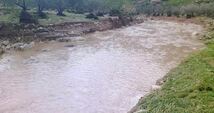
Heavy losses have been inflicted on the agricultural crops of Palestinian farmers in the blockaded Gaza Strip as a result of the freezing temperatures rocking the area.
A Thursday statement released by the Ministry of Agriculture quoted the farmers as stating that hundreds of hoop houses have fallen apart as a result of the stormy winds that have hit the besieged enclave of Gaza.
The ministry declared a state of emergency and tasked a committee with following up on the damage wrought on Gaza’s agricultural output.
A Thursday statement released by the Ministry of Agriculture quoted the farmers as stating that hundreds of hoop houses have fallen apart as a result of the stormy winds that have hit the besieged enclave of Gaza.
The ministry declared a state of emergency and tasked a committee with following up on the damage wrought on Gaza’s agricultural output.
16 jan 2019
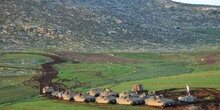
Beit Hanoun hospital director Jameel Suleiman has warned that their generator would be shut down within two days, due to shortage of fuel.
Suleiman said, in a statement, that the depletion of fuel would lead to complete paralysis in the services of the hospital, which serves 340 thousand people north of the Gaza Strip.
The spokesman of the ministry, Ashraf al-Qedra, appealed on Monday to all interested parties, to work towards immediately ending the fuel crisis in hospitals and facilities of the Ministry of Health, stressing that it will have catastrophic repercussions on patients in the Gaza Strip when the generators stopped, within just a few days.
Gaza hospitals need 450 thousand liters of fuel, per month, to operate generators during power outages that last for 8-12 hours a day, according to the ministry.
Home to more than two million people, the Gaza Strip, which continues to groan under Israeli siege, has struggled with severe electricity shortages since 2006.
Al Ray further reports that, according to Gaza’s sole power company, the Strip needs about 560 MW of electricity to meet the needs of the Palestinian population, there.
Suleiman said, in a statement, that the depletion of fuel would lead to complete paralysis in the services of the hospital, which serves 340 thousand people north of the Gaza Strip.
The spokesman of the ministry, Ashraf al-Qedra, appealed on Monday to all interested parties, to work towards immediately ending the fuel crisis in hospitals and facilities of the Ministry of Health, stressing that it will have catastrophic repercussions on patients in the Gaza Strip when the generators stopped, within just a few days.
Gaza hospitals need 450 thousand liters of fuel, per month, to operate generators during power outages that last for 8-12 hours a day, according to the ministry.
Home to more than two million people, the Gaza Strip, which continues to groan under Israeli siege, has struggled with severe electricity shortages since 2006.
Al Ray further reports that, according to Gaza’s sole power company, the Strip needs about 560 MW of electricity to meet the needs of the Palestinian population, there.
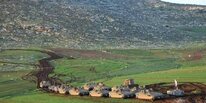
The Israeli army destroyed the crops of Palestinian farmers when its bulldozers opened a one-kilometer-long road in the area of al-Burj, Northern Jordan Valley, PNN reports.
Hundreds of Israeli soldiers later, Tuesday morning, carried out military drills on the agricultural land that belongs to Palestinians.
The army also forced 13 families in the area of Ibziq, north of Tubas, to leave their homes for the same purpose, according to WAFA.
Hundreds of Israeli soldiers later, Tuesday morning, carried out military drills on the agricultural land that belongs to Palestinians.
The army also forced 13 families in the area of Ibziq, north of Tubas, to leave their homes for the same purpose, according to WAFA.
15 jan 2019
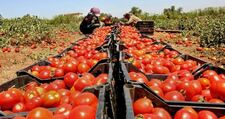
The Palestinian Ministry of Agriculture has announced its decision to block the export of tomatoes to markets outside of the besieged Gaza Strip for two days owing to the swift price hike.
In a Tuesday statement, the ministry said the export ban comes at a time when the price of tomatoes has made a sudden leap, adding that the move seeks to have prices go down by increasing the quantities of tomatoes exposed in local markets.
Blockaded by the Israeli military from land, air, and sea, the Gaza Strip, home to nearly 2 million Palestinians, has been isolated from the outside world for more than 11 years. The blockade has had disastrous fallouts on the enclave’s socio-economic conditions, with millions of civilians living below the poverty line.
In a Tuesday statement, the ministry said the export ban comes at a time when the price of tomatoes has made a sudden leap, adding that the move seeks to have prices go down by increasing the quantities of tomatoes exposed in local markets.
Blockaded by the Israeli military from land, air, and sea, the Gaza Strip, home to nearly 2 million Palestinians, has been isolated from the outside world for more than 11 years. The blockade has had disastrous fallouts on the enclave’s socio-economic conditions, with millions of civilians living below the poverty line.
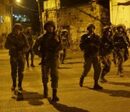
Israeli soldiers abducted, overnight until morning hours Tuesday, at least 28 Palestinians, including children, and a shepherd, in several parts of the occupied West Bank, the Palestinian Prisoners’ Society (PPS) has reported.
The PPS office in Jenin, in northern West Bank, has reported that the soldiers abducted eight Palestinians in the governorate, after invading their homes and ransacking them.
They have been identified as Majd Ahmad Ba’jawi, Abdullah Maher Abu Bakr, Jihad Allam Abu Bakr, Thaher Haitham Amarna, and his brother Adel, all from Ya’bad town, west of Jenin, in addition to Rateb Abdul-Karim ‘Oweis, Baha’ Qasrawi and Mohammad Adel Alaqma, from several towns in the governorate.
It is worth mentioning that Rateb is the son of Abdul-Karim ‘Oweis, who is imprisoned by Israel after being sentenced to life.
In Nablus, also in northern West Bank, the soldiers abducted two siblings, identified as Ala’ Hashash and his brother Ameed, in addition to Sultan Ibrahim Abu Mustafa and Fadi Emad Abu Hadrous.
Furthermore, the soldiers invaded many homes in the Ramallah and al-Biereh Governorate, in central West Bank, and abducted six Palestinians, identified as Mohammad Mahmoud Qa’ad, 28, Suleiman Abu Ghosh, Yahia Silwadi, Ibrahim Abdullah Askar, Sa’id Jouda Yacoub and Assef Refa’ey.
In Hebron governorate, in the southern part of the West Bank, the soldiers abducted Mohammad Mahmoud Awad, 28, Mershed Mohammad Za’aqeeq, 46, Hamza Hosni Nassereddin, 19, Hasan Abdul-Salam ‘Oweiwi, and Ahmad Fadel Mahfouth, 19, after invading their homes and searching them.
In Bethlehem, south of occupied Jerusalem, the soldiers abducted Mohannad Sabri Thawabta, 14, Mohammad Nabil Thawabta, 15, Mohammad Hasan Abu Ajamiyya and Baha’ Khaled al-Badan.
In addition, the soldiers abducted a Palestinian shepherd identified as Yousef Bisharat, in Makhoul area, in the West Bank’s Northern Plains, after a group of extremist illegal Israeli colonists chased him, and his herd.
It is worth mentioning that the colonists frequently attack Palestinian shepherds in the area, leading to many injuries, in addition to steeling or killing some of their livestock, while Israeli soldiers also abducted many of shepherds and farmers.
The PPS office in Jenin, in northern West Bank, has reported that the soldiers abducted eight Palestinians in the governorate, after invading their homes and ransacking them.
They have been identified as Majd Ahmad Ba’jawi, Abdullah Maher Abu Bakr, Jihad Allam Abu Bakr, Thaher Haitham Amarna, and his brother Adel, all from Ya’bad town, west of Jenin, in addition to Rateb Abdul-Karim ‘Oweis, Baha’ Qasrawi and Mohammad Adel Alaqma, from several towns in the governorate.
It is worth mentioning that Rateb is the son of Abdul-Karim ‘Oweis, who is imprisoned by Israel after being sentenced to life.
In Nablus, also in northern West Bank, the soldiers abducted two siblings, identified as Ala’ Hashash and his brother Ameed, in addition to Sultan Ibrahim Abu Mustafa and Fadi Emad Abu Hadrous.
Furthermore, the soldiers invaded many homes in the Ramallah and al-Biereh Governorate, in central West Bank, and abducted six Palestinians, identified as Mohammad Mahmoud Qa’ad, 28, Suleiman Abu Ghosh, Yahia Silwadi, Ibrahim Abdullah Askar, Sa’id Jouda Yacoub and Assef Refa’ey.
In Hebron governorate, in the southern part of the West Bank, the soldiers abducted Mohammad Mahmoud Awad, 28, Mershed Mohammad Za’aqeeq, 46, Hamza Hosni Nassereddin, 19, Hasan Abdul-Salam ‘Oweiwi, and Ahmad Fadel Mahfouth, 19, after invading their homes and searching them.
In Bethlehem, south of occupied Jerusalem, the soldiers abducted Mohannad Sabri Thawabta, 14, Mohammad Nabil Thawabta, 15, Mohammad Hasan Abu Ajamiyya and Baha’ Khaled al-Badan.
In addition, the soldiers abducted a Palestinian shepherd identified as Yousef Bisharat, in Makhoul area, in the West Bank’s Northern Plains, after a group of extremist illegal Israeli colonists chased him, and his herd.
It is worth mentioning that the colonists frequently attack Palestinian shepherds in the area, leading to many injuries, in addition to steeling or killing some of their livestock, while Israeli soldiers also abducted many of shepherds and farmers.
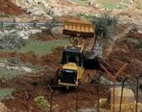
A group of illegal Israeli colonialist settlers invaded, Tuesday, Palestinian farmlands in Khirbat Yanoun village, south of the northern West bank city of Nablus, and uprooted them.
Ghassan Daghlas, a Palestinian official who monitors Israel’s illegal colonialist activities in northern West Bank, said the colonist invaded the lands with their bulldozers, and uprooted nearly 30 Dunams.
Daghlas added that the colonists usually bulldoze and uproot the Palestinian lands before planting them, in order to take control of the properties.
He also said that the uprooted lands are privately-owned by the villages, who have been denied access to them since the year 2006.
The lands are surrounding by four illegal colonialist outposts, which were all installed on private Palestinian property.
Ghassan Daghlas, a Palestinian official who monitors Israel’s illegal colonialist activities in northern West Bank, said the colonist invaded the lands with their bulldozers, and uprooted nearly 30 Dunams.
Daghlas added that the colonists usually bulldoze and uproot the Palestinian lands before planting them, in order to take control of the properties.
He also said that the uprooted lands are privately-owned by the villages, who have been denied access to them since the year 2006.
The lands are surrounding by four illegal colonialist outposts, which were all installed on private Palestinian property.
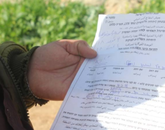
Israeli soldiers invaded, on Tuesday ay dawn, the northern West Bank city of Nablus, before abducting three Palestinians, in addition to confiscating several expensive lathe machines from a workshop.
Media sources in Nablus said the soldiers invaded the eastern area of the city, before abducting Fadi Abu Hadrous, from the Old Askar Refugee Camp, and to Sa’id Ja’far Dweikat, from the Housing Projects area, after invading their homes and violently searching them.
The soldiers also abducted another man, identified as Sultan Abu Mustafa, after stopping him at Huwwara military roadblock, south of Nablus.
In addition, the soldiers invaded a lathe workshop, owned by As’ad Nasrallah Shamla, and confiscated seven machines, with the estimated cost of $250.000 to 300.000, and added that this was the second time the soldiers invade, destroy and confiscate the workshop’s machines since the year 2007.
As’ad added that this attack targets the only source of livelihood of seven families.
Media sources in Nablus said the soldiers invaded the eastern area of the city, before abducting Fadi Abu Hadrous, from the Old Askar Refugee Camp, and to Sa’id Ja’far Dweikat, from the Housing Projects area, after invading their homes and violently searching them.
The soldiers also abducted another man, identified as Sultan Abu Mustafa, after stopping him at Huwwara military roadblock, south of Nablus.
In addition, the soldiers invaded a lathe workshop, owned by As’ad Nasrallah Shamla, and confiscated seven machines, with the estimated cost of $250.000 to 300.000, and added that this was the second time the soldiers invade, destroy and confiscate the workshop’s machines since the year 2007.
As’ad added that this attack targets the only source of livelihood of seven families.
14 jan 2019
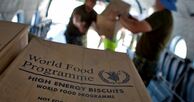
The World Food Programme (WFP) has suspended or reduced aid for scores of its Palestinian beneficiaries in the occupied West Bank and Gaza Strip due to funding shortages.
Some 27,000 Palestinians are no longer receiving aid through the United Nations programme since January 1 in the occupied West Bank, said Stephen Kearney, the organization’s director for the Palestinian territories.
Another 165,000, including 110,000 in Gaza, are receiving 80 percent of the usual amount, he said on Sunday.
The cuts were decided upon after a gradual reduction in donations over the past nearly four years, with US cuts having the biggest effect.
In 2018, the WFP assisted 250,000 people in Gaza and 110,000 in the West Bank.
The WFP launched a funding appeal on December 19 and received additional contributions from the European Union and Switzerland, but the amount remains short, Kearney said.
It said at the time that it was in need of $57m. It will now seek contributions from new donors in an effort to fill the gap, he said.
Kearney said there were also concerns that the cuts would affect the local economy since residents used the cards to buy goods in local stores.
In the Gaza Strip, around 80 percent of the two million residents rely on international aid.
The strip has been under an Israeli blockade for more than a decade. Israel has launched three military offensives on the territory since 2008.
US President Donald Trump has cut some $500m in Palestinian aid.
Some 27,000 Palestinians are no longer receiving aid through the United Nations programme since January 1 in the occupied West Bank, said Stephen Kearney, the organization’s director for the Palestinian territories.
Another 165,000, including 110,000 in Gaza, are receiving 80 percent of the usual amount, he said on Sunday.
The cuts were decided upon after a gradual reduction in donations over the past nearly four years, with US cuts having the biggest effect.
In 2018, the WFP assisted 250,000 people in Gaza and 110,000 in the West Bank.
The WFP launched a funding appeal on December 19 and received additional contributions from the European Union and Switzerland, but the amount remains short, Kearney said.
It said at the time that it was in need of $57m. It will now seek contributions from new donors in an effort to fill the gap, he said.
Kearney said there were also concerns that the cuts would affect the local economy since residents used the cards to buy goods in local stores.
In the Gaza Strip, around 80 percent of the two million residents rely on international aid.
The strip has been under an Israeli blockade for more than a decade. Israel has launched three military offensives on the territory since 2008.
US President Donald Trump has cut some $500m in Palestinian aid.
13 jan 2019
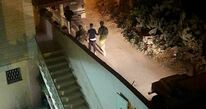
The Israeli occupation forces at daybreak Sunday wreaked havoc on two Palestinian storerooms in Arana village, east of Jenin.
Local sources said Israeli troops raided Arana village at the crack of dawn and smashed equipment, including a tract and agricultural kit, inside two Palestinian stores.
The two storerooms reportedly belong to the two Palestinian brothers Rabi’ and Ahmad al-Umari, both held in Israeli occupation jails.
Local sources said Israeli troops raided Arana village at the crack of dawn and smashed equipment, including a tract and agricultural kit, inside two Palestinian stores.
The two storerooms reportedly belong to the two Palestinian brothers Rabi’ and Ahmad al-Umari, both held in Israeli occupation jails.
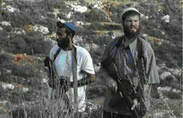
Illegal Jewish settlers, on Sunday, have destroyed hundreds of forest saplings that were ready to be planted near the village of Burqa, north of the city of Nablus, in the occupied West Bank, according to a local source.
Ghassan Daghlas, who monitors settlement activities in the area, told WAFA that settlers raided an outskirt of the village and destroyed hundreds of saplings that were ready to be planted in order to turn some of the village’s lands into a natural preserve.
He noted an increase in attacks against the village and its citizens, by Jewish settlers from neighboring illegal settlements.
Last week, settlers uprooted and stole newly planted almond and olive samplings near the village of Yanoun, to the south of Nablus.
Ghassan Daghlas, who monitors settlement activities in the area, told WAFA that settlers raided an outskirt of the village and destroyed hundreds of saplings that were ready to be planted in order to turn some of the village’s lands into a natural preserve.
He noted an increase in attacks against the village and its citizens, by Jewish settlers from neighboring illegal settlements.
Last week, settlers uprooted and stole newly planted almond and olive samplings near the village of Yanoun, to the south of Nablus.
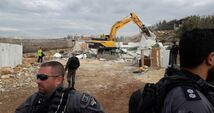
Fishermen in the besieged Gaza Strip continue to launch distress signals over the increasing violations and attacks perpetrated by the Israeli occupation navy against them on a daily basis as they sail off Gaza’s seashore in the hunt for a living to feed their families.
Head of Gaza’s Fishermen Union, Nizar Ayyash, said 90% of fishermen, estimated at some 4,000, have been living below the poverty line as a result of the simmering Israeli aggressions on the enclave.
He said Gaza’s fishermen along with their families have been struggling for survival owing to abject living conditions they have been made to endure.
According to Ayyash, the list of violations includes gunboat attacks by the Israeli occupation navy. Fishermen have been directly hit with machine gunfire while sailing a few miles away from Gaza’s seashore. As a result, fishing vessels have sustained serious damage; others drowned at sea; while several other ships have been seized by the occupation navy and towed to Ashdod seaport.
At the same time, the Israeli occupation navy abruptly reduced the authorized fishing zone for Gaza’s fishermen from six nautical miles to three only and banned the import of equipment used to repair damaged boats and construct others.
Ayyash referred to a recent attack by the Israeli navy which occurred last Thursday, when the occupation forces chased down fishermen off Gaza’s northern and southern coast and unleashed heavy spates of machine gunfire.
Sometime later on that very day, Israeli gunboats targeted a fishing vessel north of Gaza’s shoreline with machine gunfire and arrested two brothers onboard. The two fishermen were released hours later but their vessel was seized.
Ayyash warned of the socio-economic repercussions of Israeli crackdowns on Gaza fishermen, calling on the concerned human rights bodies to take urgent action in response to such violations.
Head of Gaza’s Fishermen Union, Nizar Ayyash, said 90% of fishermen, estimated at some 4,000, have been living below the poverty line as a result of the simmering Israeli aggressions on the enclave.
He said Gaza’s fishermen along with their families have been struggling for survival owing to abject living conditions they have been made to endure.
According to Ayyash, the list of violations includes gunboat attacks by the Israeli occupation navy. Fishermen have been directly hit with machine gunfire while sailing a few miles away from Gaza’s seashore. As a result, fishing vessels have sustained serious damage; others drowned at sea; while several other ships have been seized by the occupation navy and towed to Ashdod seaport.
At the same time, the Israeli occupation navy abruptly reduced the authorized fishing zone for Gaza’s fishermen from six nautical miles to three only and banned the import of equipment used to repair damaged boats and construct others.
Ayyash referred to a recent attack by the Israeli navy which occurred last Thursday, when the occupation forces chased down fishermen off Gaza’s northern and southern coast and unleashed heavy spates of machine gunfire.
Sometime later on that very day, Israeli gunboats targeted a fishing vessel north of Gaza’s shoreline with machine gunfire and arrested two brothers onboard. The two fishermen were released hours later but their vessel was seized.
Ayyash warned of the socio-economic repercussions of Israeli crackdowns on Gaza fishermen, calling on the concerned human rights bodies to take urgent action in response to such violations.
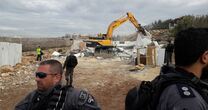
Israeli bulldozers on Sunday demolished an animal barn and other agricultural structures in the village of Beit Iksa, northwest of occupied Jerusalem.
Bilbal al-Mashni, member of Beit Iksa village council, said that the targeted barns and structures belong to the Palestinian brothers Haytham and Ibrahim Abdul-Wahhab.
He added that the soldiers prevented the locals from accessing the area where the demolition has been taking place.
Israeli occupation forces regularly demolish Palestinian homes and structures in the occupied West Bank and Jerusalem under the pretext that they were built without permits.
Beit Iksa, home to 2,000 Palestinians, has been increasingly subjected to daily violations and crackdowns by the Israeli military in an attempt to isolate it from neighboring Palestinian villages and force its inhabitants out of their homes.
Bilbal al-Mashni, member of Beit Iksa village council, said that the targeted barns and structures belong to the Palestinian brothers Haytham and Ibrahim Abdul-Wahhab.
He added that the soldiers prevented the locals from accessing the area where the demolition has been taking place.
Israeli occupation forces regularly demolish Palestinian homes and structures in the occupied West Bank and Jerusalem under the pretext that they were built without permits.
Beit Iksa, home to 2,000 Palestinians, has been increasingly subjected to daily violations and crackdowns by the Israeli military in an attempt to isolate it from neighboring Palestinian villages and force its inhabitants out of their homes.
12 jan 2019
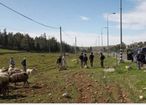
A group of extremist illegal Israeli colonialist settlers attacked, Saturday, many Palestinian farmers while working on their own lands, and several shepherds, in Yatta town, south of the southern West Bank city of Hebron, causing them to suffer cuts and bruises.
Rateb Jabour, the coordinator of the National and Popular Committees against the Annexation Wall and Colonies in southern West Bank, said the colonists attacked many farmers in at-Tiwana, Susiya and Khirbat Umm al-Amid communities, in Yatta, and assaulted many Palestinian farmers and shepherds.
Jabour added that the settlers also used their dogs in attacking the Palestinians, causing injuries.
Three of the wounded Palestinians have been identified as Nasr Nawaj’a, Ahmad Khaled Najjar and Jabr Zein.
Nawaj’a, who is also a nonviolent activist against the Israeli occupation and its colonies, said the colonists unleashed dogs on him, before the dogs mauled and bit him in his arms and legs. He was then moved to Abu al-Hasan al-Qassem hospital, in Yatta town.
Jabour denounced the latest attack and stated that it was part of numerous assaults and violations by the illegal colonialist settlers against the Palestinians and their lands, amidst military and political protection from the Israeli occupation, and its judicial system.
“The attacks are escalating against innocent civilians, including simple farmers and shepherds, in many villages in southern Hebron, he said, “They are all part of the ongoing attempts to force the indigenous Palestinians out of their homes and lands in order to build and expand the illegal colonies.”
Rateb Jabour, the coordinator of the National and Popular Committees against the Annexation Wall and Colonies in southern West Bank, said the colonists attacked many farmers in at-Tiwana, Susiya and Khirbat Umm al-Amid communities, in Yatta, and assaulted many Palestinian farmers and shepherds.
Jabour added that the settlers also used their dogs in attacking the Palestinians, causing injuries.
Three of the wounded Palestinians have been identified as Nasr Nawaj’a, Ahmad Khaled Najjar and Jabr Zein.
Nawaj’a, who is also a nonviolent activist against the Israeli occupation and its colonies, said the colonists unleashed dogs on him, before the dogs mauled and bit him in his arms and legs. He was then moved to Abu al-Hasan al-Qassem hospital, in Yatta town.
Jabour denounced the latest attack and stated that it was part of numerous assaults and violations by the illegal colonialist settlers against the Palestinians and their lands, amidst military and political protection from the Israeli occupation, and its judicial system.
“The attacks are escalating against innocent civilians, including simple farmers and shepherds, in many villages in southern Hebron, he said, “They are all part of the ongoing attempts to force the indigenous Palestinians out of their homes and lands in order to build and expand the illegal colonies.”
